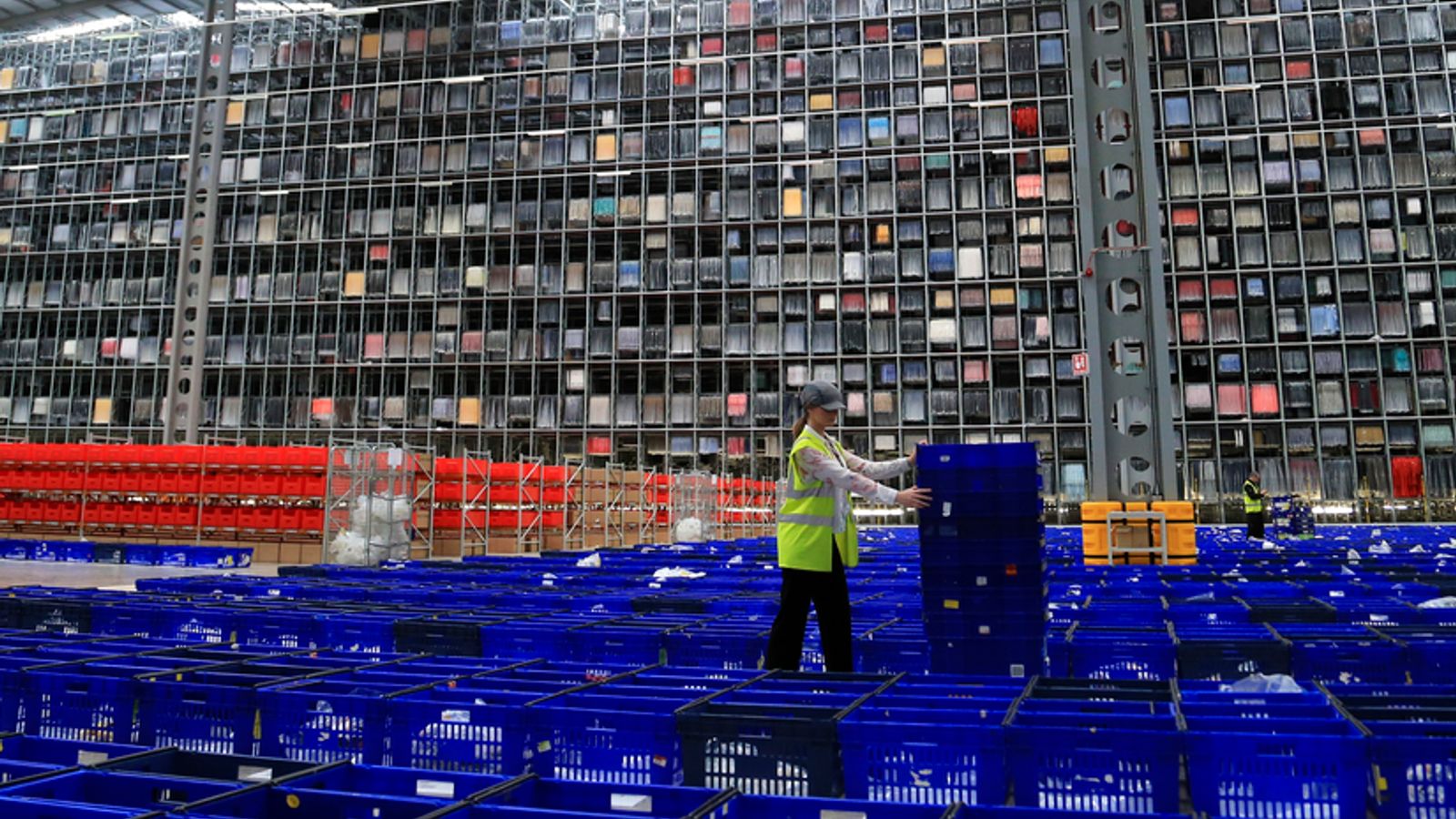The takeover of Clipper Ventures, the logistics company that numbers Asda, Asos, H&M, JD Sports and John Lewis among its customers, should in theory represent the latest chapter of a heart-warming rags to riches story.
The proposed £943m sale, to the US logistics giant GXO Logistics, will crystallise a further £139m for Steve Parkin, Clipper’s founder and executive chairman.
But the takeover by the Connecticut-based company also symbolises what some say is a malaise in the UK stock market.
For plenty of people will wonder why a business with such attractive growth prospects – it services the booming e-commerce and e-fulfilment sectors – was so undervalued by investors that a US buyer has been able to snap it up at a price slightly lower than where the shares were changing hands only last September.
Clipper’s story is certainly remarkable.
Mr Parkin, 61, grew up on a council estate in the Leeds suburb of Middleton and left school at the age of 16 with no qualifications.
He subsequently spent 18 months working as a coal miner before deciding against a career in the pits and obtaining a heavy goods vehicle licence.
House prices: Return to major cities aids ‘biggest leap for 20 years’
Barclays lines up Cross as first female finance chief
Leap in business costs fails to dent economy’s ‘resurgent recovery’ in February
The businessman, who has described Margaret Thatcher as a “genius”, has subsequently credited his time at the coalface for turning him into a Conservative supporter after he saw, first-hand, the militancy of the pit unions.
He told the Sunday Times in 2019: “I hated the mines. I stuck it out for 18 months. Being down there taught me about capitalism and socialism. It inspired me to better myself, to want more and to work hard to get it.”
Mr Parkin then spent several years delivering fish to customers around the north of England for a business bearing the name Clipper Seafood.
In 1992, he set up on his own as a ‘man and van’, taking the name Clipper with him because it conjured up an image reminiscent of the 19th century ships built for speed. Initially, it focused on making deliveries from depots to stores for retailers.
His big break, as he told the Financial Times in 2016, came from working with Sir Philip Green’s retail empire.
Clipper had had a contract with Mark One, the fashion retailer, in Leeds when, in 1995, the company went into administration owing him £300,000. His bank, NatWest, called in his overdraft.
Mr Parkin recalled to the FT: “Within a few days, Sir Philip Green had bought Mark One. He gave me – I’ll never forget – six post-dated cheques for £50,000 each from Bank Leumi, the Israeli bank.
“I put a call in to the bank manager and asked him to come see me. And he walked in and he thought I was going to hit him. I gave him the six cheques. He said: “I think that might put a different perspective on things”.”
Clipper went on to work with BHS, the department store chain Sir Philip acquired in 1999, with Mr Parkin crediting the tycoon as “a massive influence on the success of the business”.
From there, Mr Parkin was able to see how big online retail was going to become, building the business accordingly. In particular, it proved adept at helping retailers deal efficiently with returns, a key cost to such businesses.
It now employs more than 10,000 people in 52 warehouses and fulfilment centres – with a growing presence in Europe, where it now operates in Poland, Germany, the Republic of Ireland, the Netherlands and Belgium.
Mr Parkin has said that, if anyone orders an item online from John Lewis, there is a 90% chance that it will have come from one of Clipper’s warehouses.
Clipper’s stock market flotation in May 2014, at 100p a share, valued the business at £112.5million. Mr Parkin sold £30m worth of shares at the flotation and has since sold down his stake further, most notably in January last year, when he raised £62m in what was described as an estate planning exercise.
Mr Parkin has enjoyed his wealth; he has been twice linked with a possible takeover of Leeds United, the football club he has supported since boyhood and whose training kit is sponsored by Clipper.
He has also indulged a passion for horseracing – one of his earliest horses was named Captain Rio after the former Leeds and England defender Rio Ferdinand – and has established the 300-acre Branton Court Stud at Knaresborough in north Yorkshire.
He even booked Prince to perform at his house-warming in 2016, recalling to the Sporting Life in 2020: “[It] was the hardest negotiations I’ve ever been involved in – it took about three months. He was flying in from Cincinnati on a private jet and didn’t want any food giving to him and my helicopter was picking him up at Leeds Bradford Airport and bringing him to the house. He would perform, but we could only have one photograph and none of the people could go near him and as soon as he finished he was leaving.
“The lake at the front of my house was going to turn purple as he sang Purple Rain, we’d done all the songs he was going to sing, certain ones he wouldn’t. It was a palaver.”
Then, shortly before the event was due to take place, the singer-songwriter died. Mr Parkin booked Robbie Williams as a replacement.
Having pledged to take Clipper’s stock market valuation to £1bn, Mr Parkin is known to have become frustrated with life as a quoted company in recent years, in particular adhering to all the corporate governance rules.
In November 2019, Sky News revealed he had teamed up with Sun Capital, the US private equity firm, to take the company private, with a price tag of £300m mentioned.
Those talks ended in early January when it became clear that it had not been possible to reach a deal on terms satisfactory to Clipper’s other shareholders. The wisdom of those investors has now been borne out: GXO looks set to pay more than three times that sum.
The sale, should it go ahead, consists of cash and shares and will leave Mr Parkin, who currently owns just under 15% of Clipper, with a smaller percentage shareholding of a much larger business: GXO’s current stock market valuation is north of $9bn.
That organisation will have even greater presence in the UK. GXO, whose clients include Nike and Apple, bought the Swiss group Kuehne + Nagel’s UK contract logistics arm in 2020.
Investors being obliged to sell out, though, will be left wondering how big Clipper could have become as a stand-alone business.






















